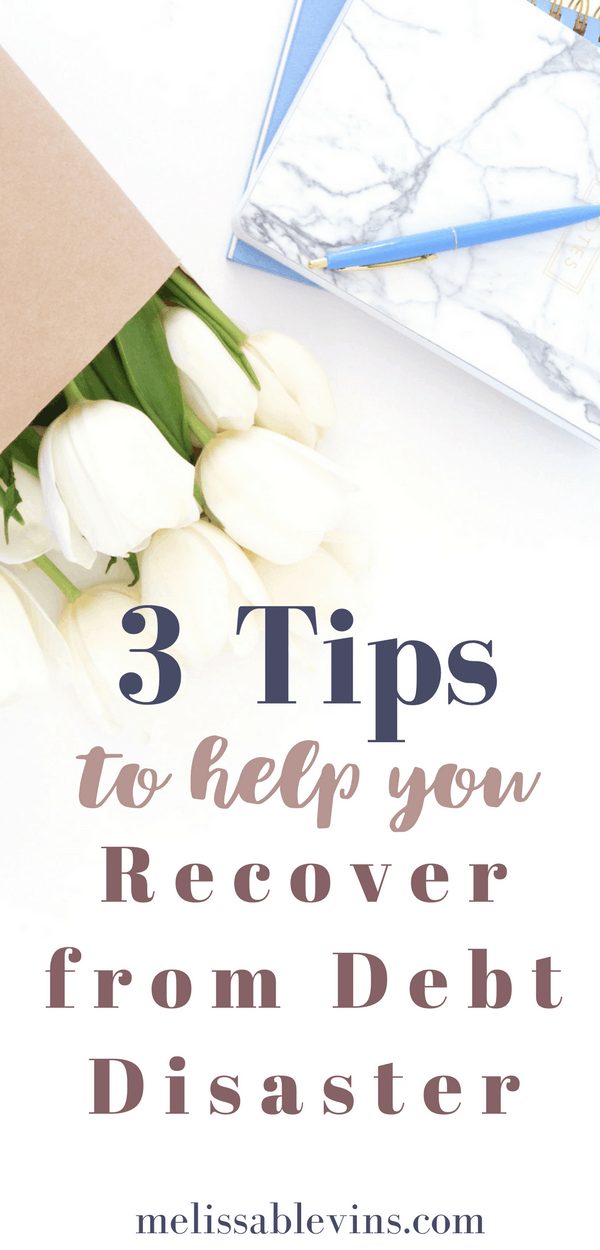This post may contain affiliate links. Click here to read my full disclosure.
It’s understandable that people in debt wish to bury their head in the sand due to the emotional overwhelm felt when it comes to the slippery slope that is debt. They simply feel so buried and harassed by creditors, and they simply don’t know where to start. Recovering from debt problems is possible, but you’ve got to take action right away to take control of your finances. When you avoid dealing with your finances, this tends to make matters a lot worse and things begin to snowball out of control.
Debt can be stressful, yet for most people having debt in itself isn’t the thing that causes stress. The stress tends to come from the debt collection activities that companies engage in when people fall behind and the constant fear of what could happen next — it’s the phone calls, the threat of a ‘home visit’, being pursued in court, and even the prospect of bailiffs coming into your home to remove personal items of value.
Being pursued for debt can be an extremely stressful situation, and often times when people are in a serious financial position they are pursued by multiple creditors with multiple streams of debt collection activity; which compounds and spirals to such an extent many choose to then bury their heads in the sand by not opening letters, avoiding phone calls, and detaching from the situation. However, when it comes to debt avoidance really isn’t the best strategy – it can provide temporary relief but it isn’t a long-term solution!
The prospect of consolidating your debt into one larger amount in order to pay off the smaller bits of debt you have offers immediate and permanent relief from the multitude of creditors that might be banging at your door.
The main benefits of consolidating your debt by getting a specialist debt consolidation loan or perhaps even a second mortgage aside from the obvious financial benefits of avoiding late charges being applied, is that you are now dealing with one creditor rather than several. Your lender usually limits the amount of loan to value, or LTV, they will loan you, so ask questions before you assume you can obtain the full value of your home to consolidate debt. There is a potential downside to this, though.
If you consolidate debt, you really need to close the credit card accounts so that they don’t get racked up again! Managing your personal finances is more about mindset than numbers. You’ve got to remove any temptation to go into debt again. You should also know that you could potentially lose any stake of equity you have in your home if you choose to go this route. So if you need to sell your home within the next few years, this might not be the best option. I’ve created a free debt snowball spreadsheet for you! Just enter your email in the box below, and I’ll send it right over. This will help you in seeing how much damage you’ve done and how long until you’re able to be debt free using the debt snowball vs debt avalanche (paying off debt according to interest rate first).
Furthermore, rather than having a number of debts with late payments (which will have a negative impact on your credit score) you now have just one debt with payments that are now being made on time. This will also lower your credit utilization and raise your credit score. Credit utilization makes up about a third of your credit scoring factors.
3 Steps to Recovering from Debt Problems
-
Credit Check: Where you are NOW
The first step is to check your credit report, and if your score is less than desirable then you are in the empowered position to take immediate action to start repairing your credit score. The first thing is to check for errors; some credit reports contain many errors due to simple administrative error or complex issues such as identity fraud; be sure to check there are no late payments incorrectly listed for any accounts and dispute any errors you do find with the credit bureau.
-
GET BACK ON TRACK
If you have missed payments, then stop worrying about this – the damage is done – all you have control over is the current moment which will directly affect what happens next, and the best thing you can do moving forward is to ensure your bills are paid on time. Sometimes, borrowing money can be a justifiable and viable way to consolidate your debts and get back on track. The goal is to get back on track by getting up to date with your bills, even if that involves negotiating payment terms so that no further damage is done to your credit file – and then stay on track. If you have a few red crosses, then the remedy to that is to create many more green ticks; there is no remedy in burying your head and letting things spiral no matter how tempting it may feel.
-
REBUILD
It’s important to be mindful of the steps you need to take before applying for a loan, but one of the most important steps in rebuilding your credit history is actually getting credit. There are many financial products available from specialist companies that can help people in financial difficulty to consolidate their debt into one manageable monthly amount – even those with poor credit scores.

Life is a collection of memories and experiences. There are ups and downs. I am so grateful for God’s grace and am on the journey to a renewed spirit, free of perfectionism. Perfection Hangover offers the sober truth – no filter.


